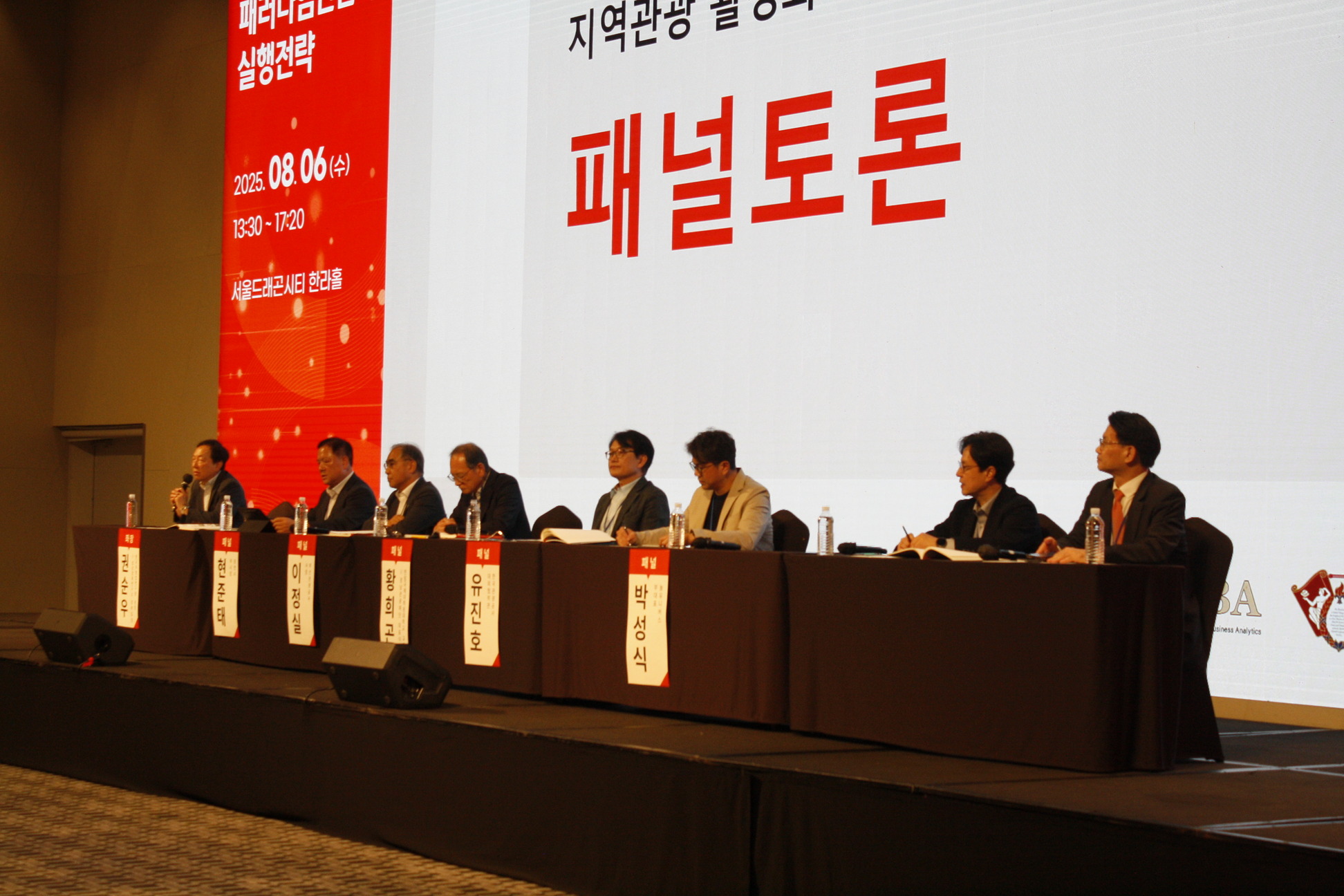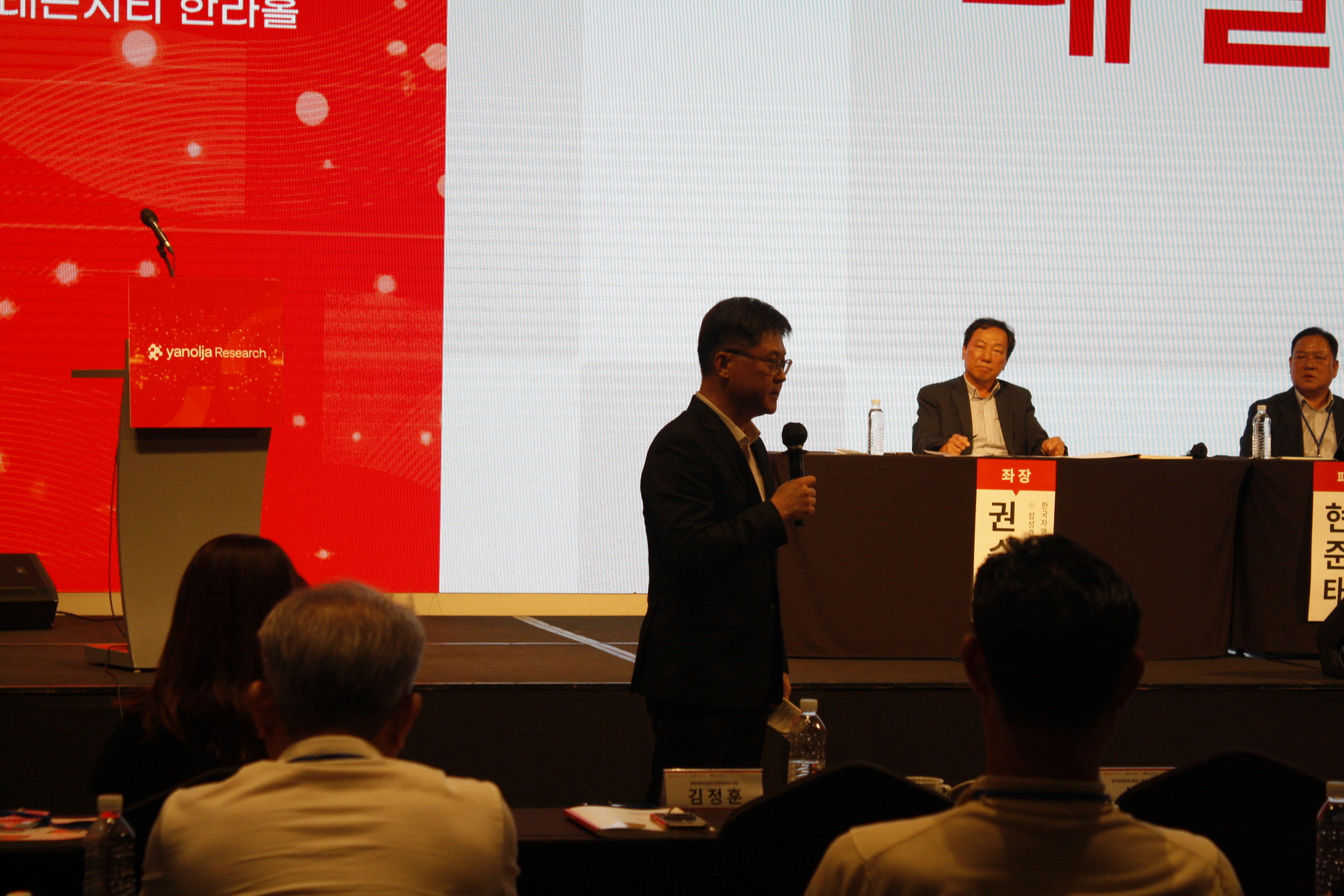On August 6, 2025, the “Paradigm Shift and Implementation Strategies for Revitalizing Regional Tourism Seminar” was held at Seoul Dragon City.
The event was organized to explore a new tourism paradigm that goes beyond simply attracting domestic and international visitors, aiming instead to discuss concrete strategies for revitalizing local economies.
The seminar began with a keynote speech by SooCheong Jang, Director of Yanolja Research and Professor at Purdue University, followed by in-depth presentations on strategies to revitalize regional tourism. Prior to the keynote, there was a welcome address by Director Jang, a congratulatory remark by Seo Won-seok, President of the Tourism Sciences Society of Korea, as well as video messages of congratulations from Busan Mayor Park Heong-joon and Chuncheon Mayor Yuk Dong-han.
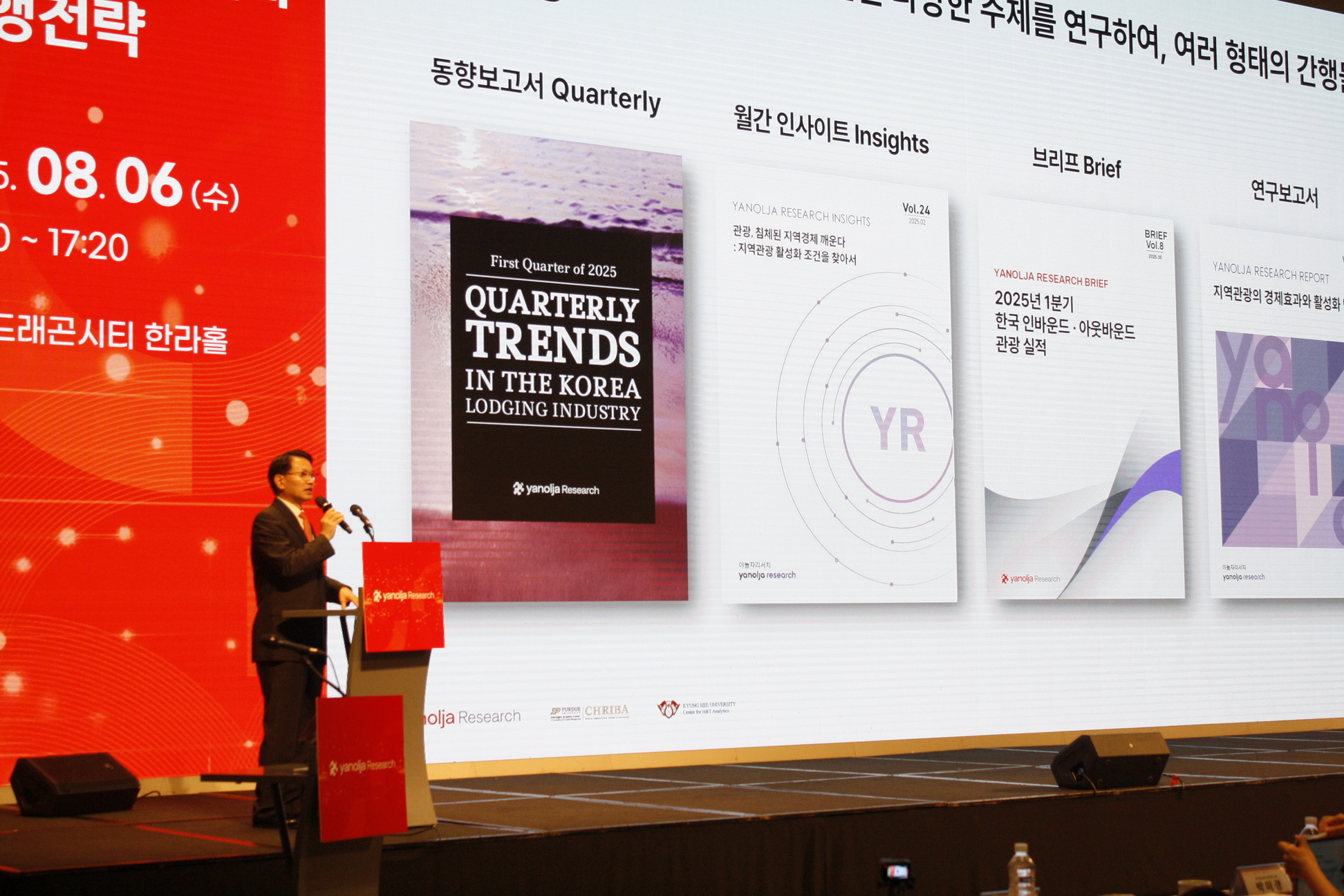
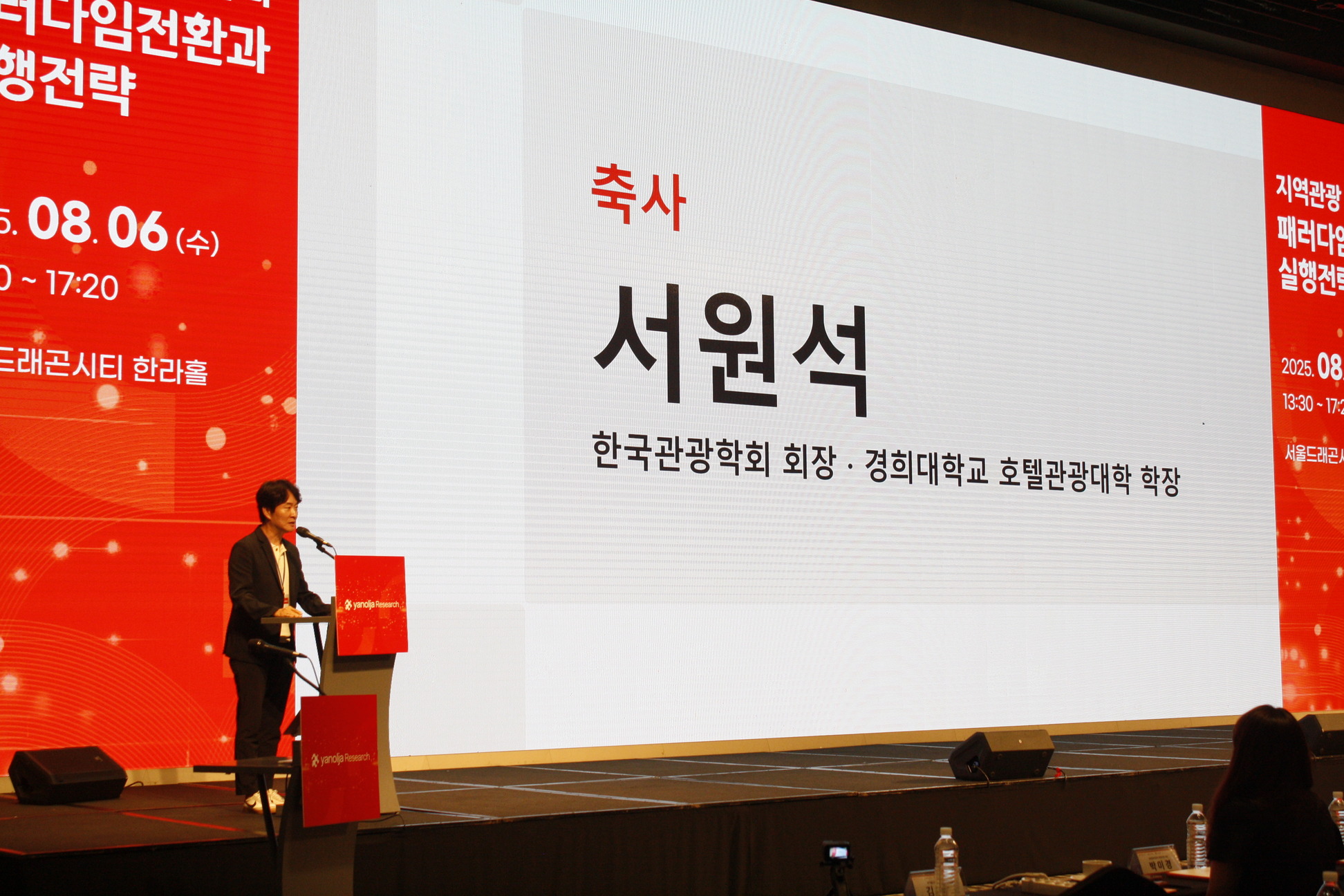
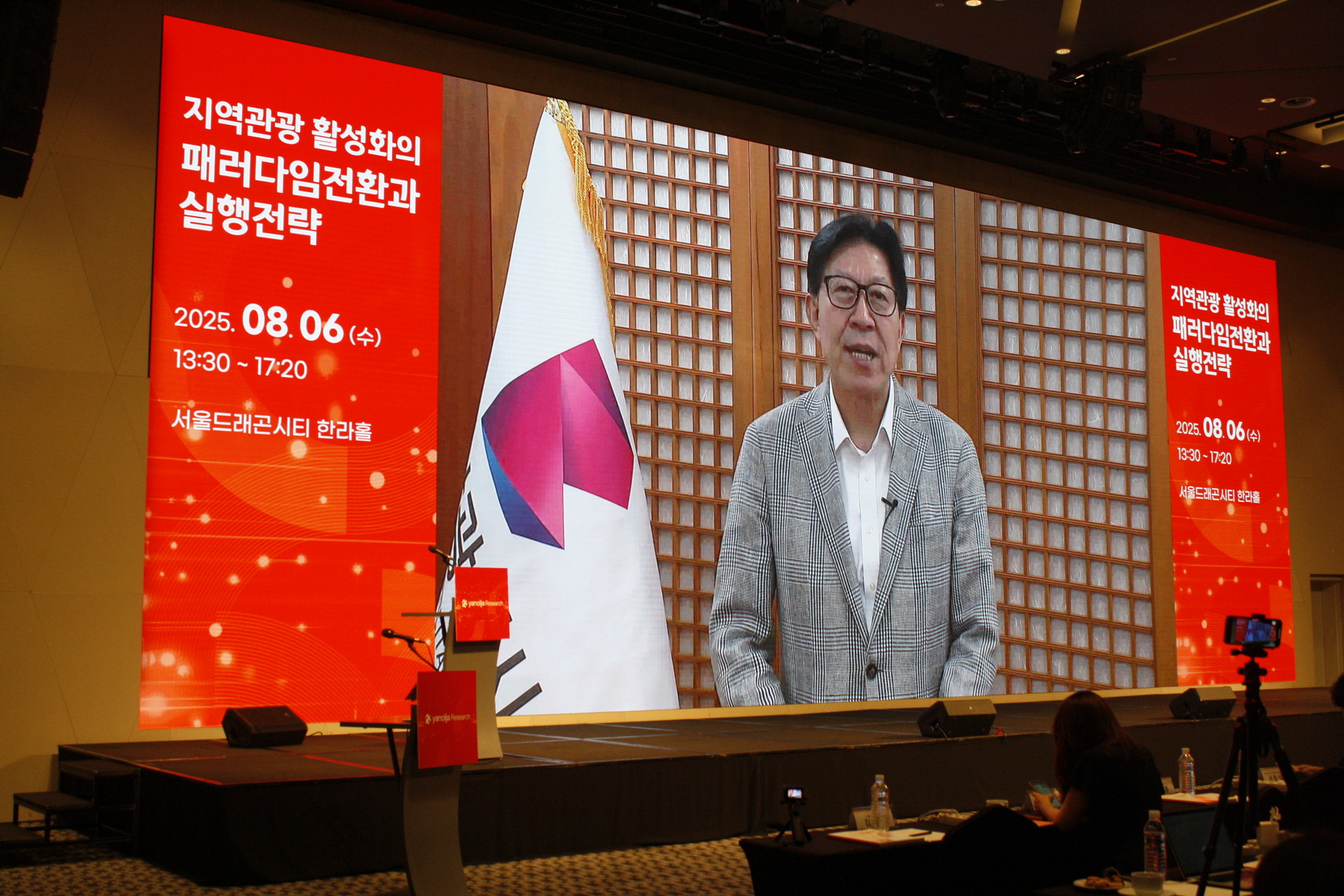
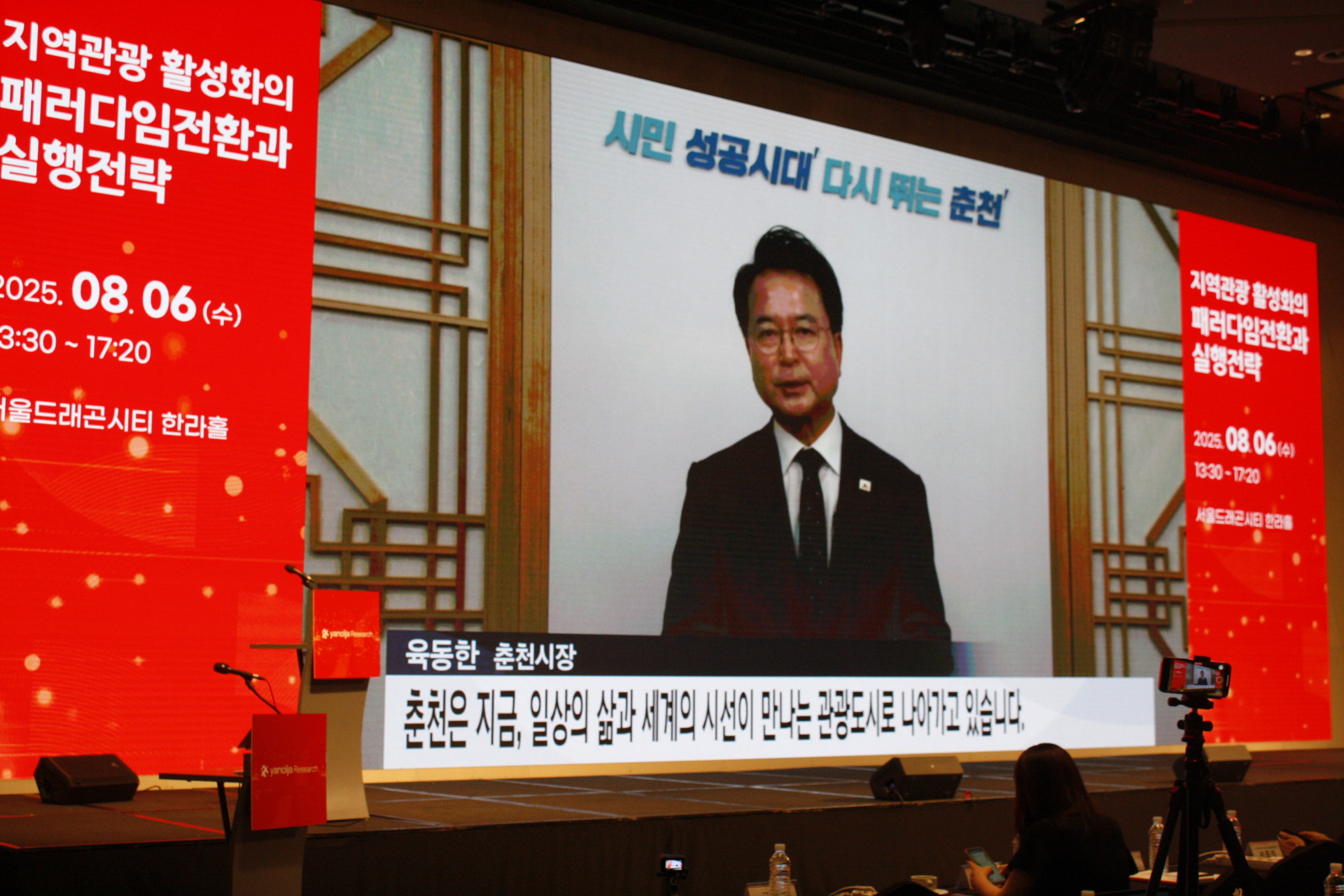
Director Jang addressed the current status and challenges of Korea’s inbound and intrabound tourism and proposed four key directions for a paradigm shift to address these issues: shifting ▲from supplier-centered to demand-centered approaches ▲from generalization to concentration ▲from fragmentation to connectivity ▲from simple execution to performance-based implementation.
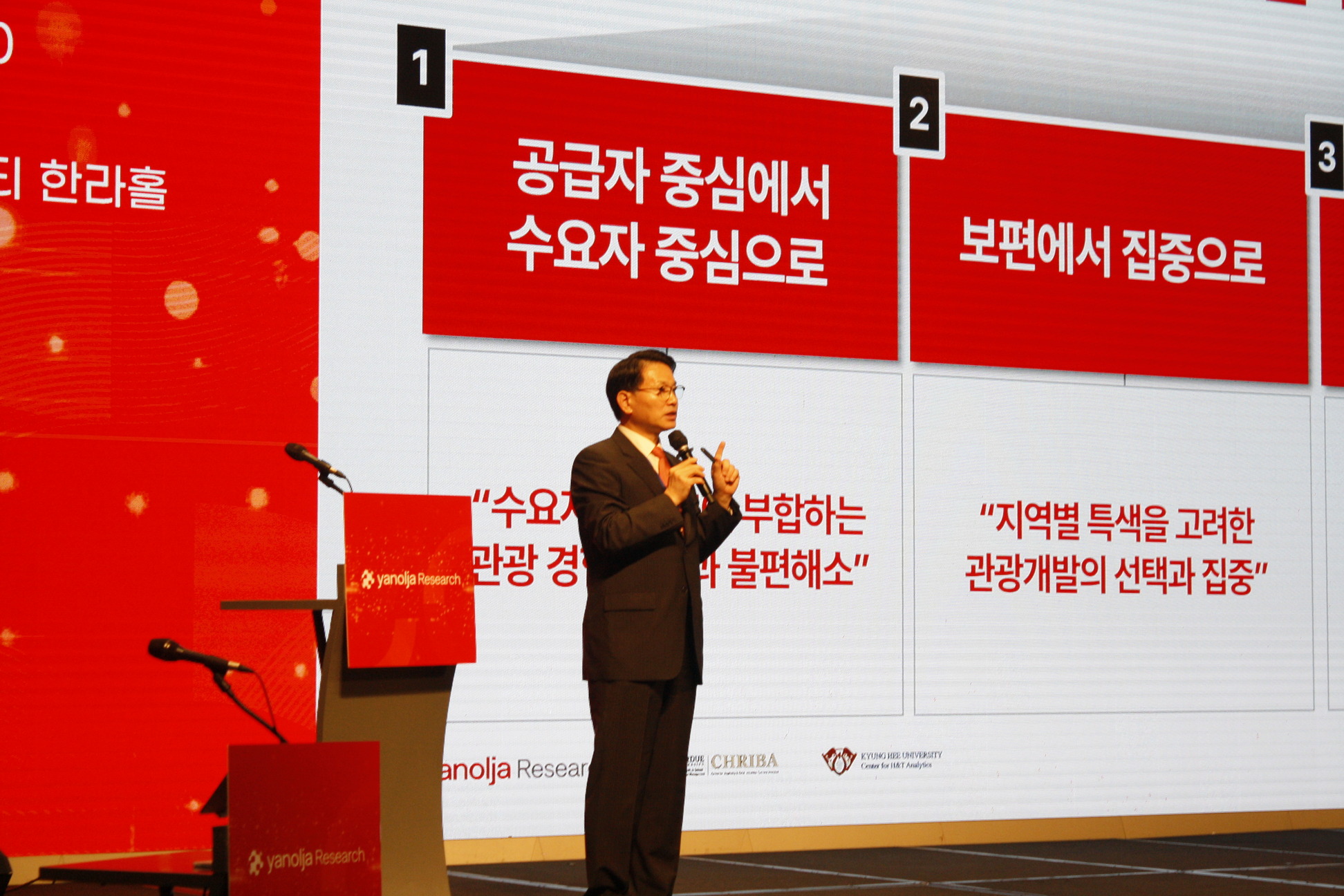
Dr. Choi emphasized the importance of moving away from piecemeal development toward strategically designing and connecting a region’s unique attractions to encourage longer stays. To achieve this, he proposed five strategic pillars: ▲diversifying target customers ▲branding tourism cities ▲optimizing the portfolio of attractions and tourism products ▲improving promotional efficiency ▲implementing performance-based tourism.
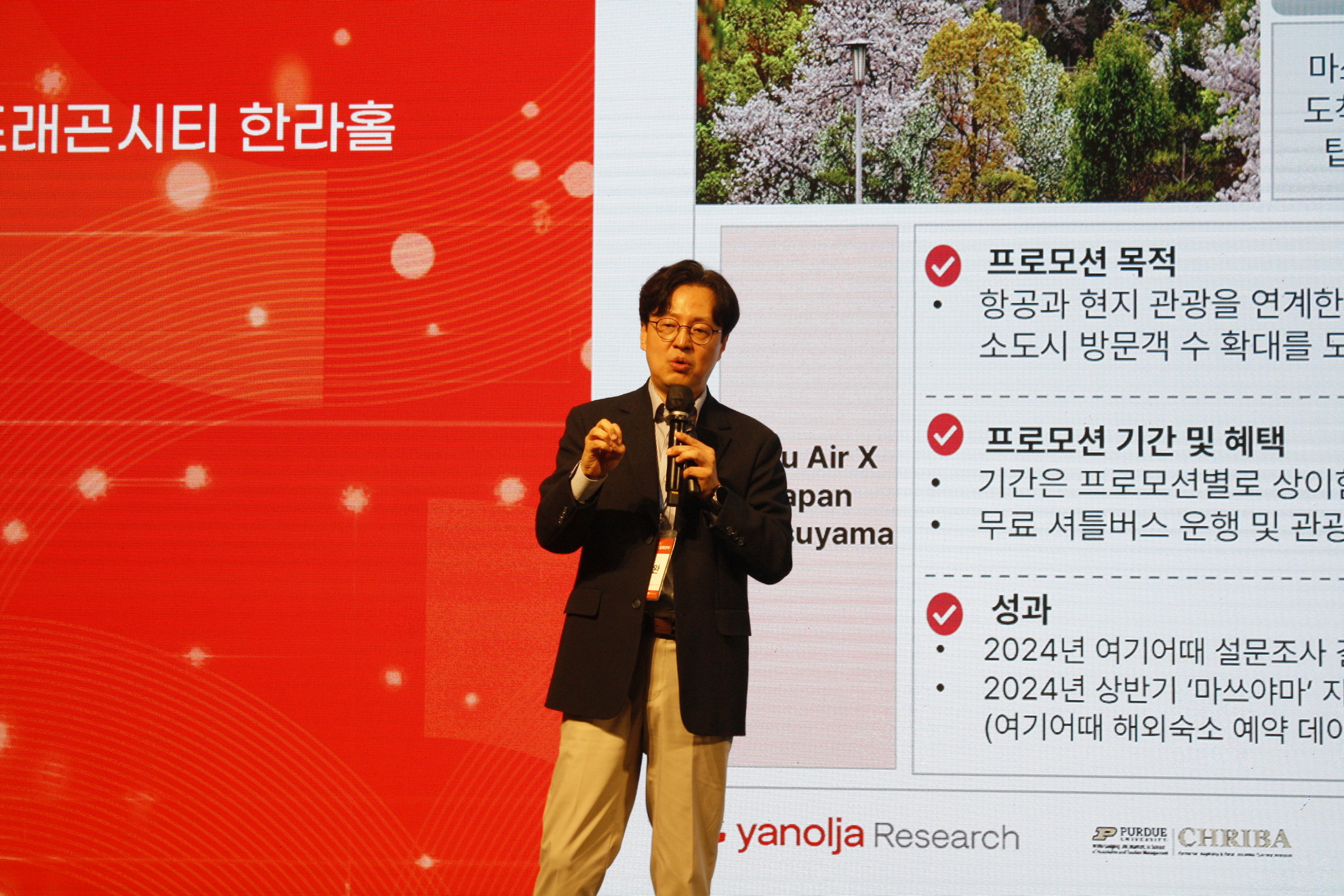
Following the presentations, a panel discussion on “Paradigm Shift and Implementation Strategies for Revitalizing Regional Tourism” was moderated by Soon-Woo Kwon, President of the Korea Self-Employed Research Institute and former Chief Economist at the Samsung Economic Research Institute. Panelists examined practical ways to apply the new paradigms and strategies presented in the keynote speeches and discussed the challenges to be addressed for the sustainable development of regional tourism.
